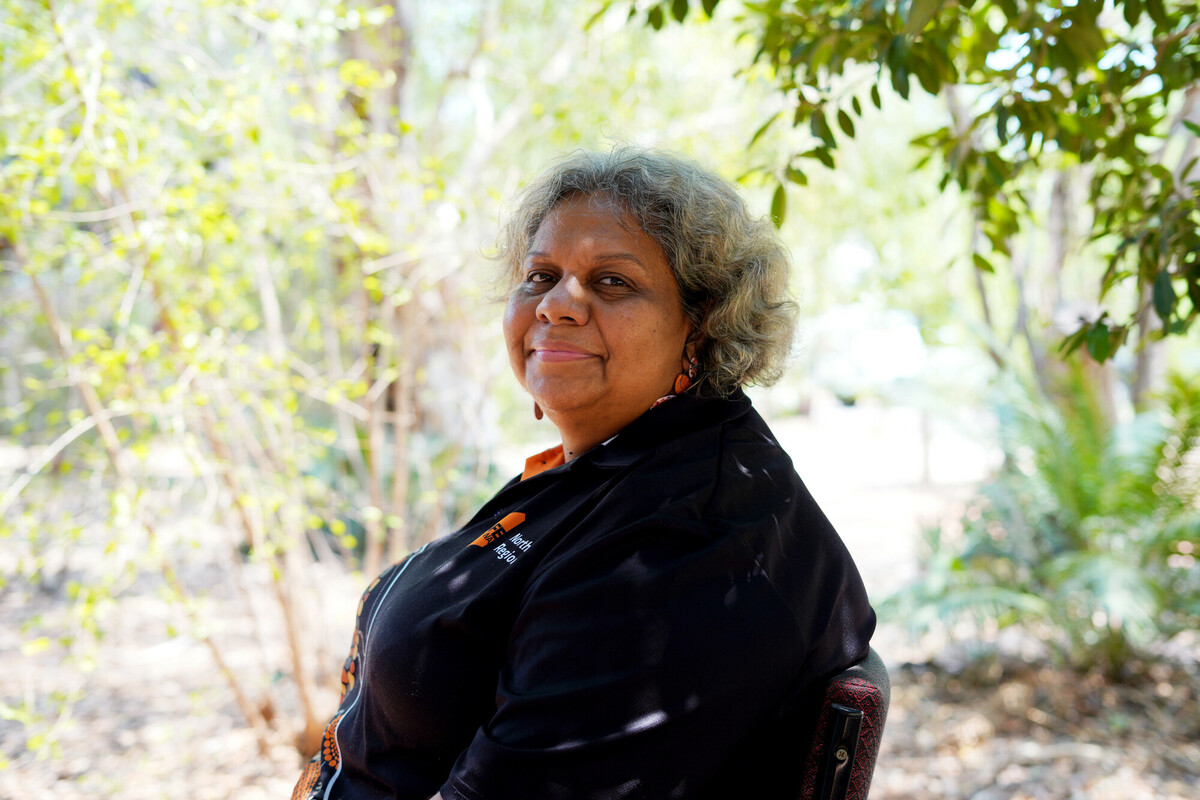Aboriginal and Torres Strait Islander Programs
More than 200 years of institutionalised dispossession, racism and discrimination have left Aboriginal and Torres Strait Islander People facing very difficult challenges, including low levels of education, high levels of unemployment, poor health and unacceptable housing and community conditions.
In Oxfam’s Strategic Plan 2014-2019, we are committed to supporting Aboriginal and Torres Strait Islander people to:
“Strengthen their voice and achieve self-determination, eliminate injustice, hold governments to account, increase their participation in political and other decision-making processes, build public support to close the gap, and achieve Indigenous equality”.
Key statistics:
- Life expectancy: Indigenous Australians can expect to live 10–17 years less than other Australians (ABS, 2012)
- Employment: 76% of the non-Indigenous population are in the labour force compared with 56% of the Aboriginal and Torres Strait Islander population (ABS, 2013)
- Education: 73% of the non-Indigenous population aged 15–64 had attained Year 12 or Certificate level II or above compared to 44% of the Aboriginal and Torres Strait Islander population (ABS, 2013)
- Domestic violence: Aboriginal and Torres Strait Islander women are 10 times more likely to die from violent assault than other women (FVPLS, 2015)
- Incarceration: Aboriginal and Torres Strait Islander adults are imprisoned at a rate 13 times higher than that of non-Indigenous people (ABS, 2014)
These statistics reflect the impacts of unaddressed grief, loss, and trauma due to disconnection from country and highlight the importance of governments, not for profit organisations and communities working together to address this unacceptable reality for our First Australians.
The extent and complexity of issues facing Aboriginal and Torres Strait Islander peoples are considerable, but so too are the stories of resilience and change. Across Australia, individuals and communities are taking action to improve their access, opportunities and lives.
Oxfam Australia’s Aboriginal and Torres Strait Islander People’s Program undertakes strategic initiatives to help build Aboriginal and Torres Strait Islander people’s capacity, political participation, community action, and health and wellbeing to challenge injustice.
A brighter future for Aboriginal and Torres Strait Islander Australians
While the statistics paint a bleak picture, we’ve seen people and communities all over Australia realise their ability to live strong, proud and healthy lives. We understand the importance of relationship building and meaningful engagement with individuals, communities and organisations. We chose partnerships and support coalitions and campaigns which will maximise influence for better policy and practice.
Together, we’re running projects across Australia to help make a positive difference to the lives of Aboriginal and Torres Strait Islander Peoples by:
- improving health and well being
- working with Aboriginal and Torres Strait Islander youth to help them realise their potential
- supporting Aboriginal and Torres Strait Islanders to achieve self-determination for their people
- supporting women’s participation and engagement in political processes and decision making through Straight Talk, noting that it is critical to making change, addressing injustice and achieving gender equality
- working as member of the Close the Gap Coalition to end the Indigenous health crisis. Read the Coalition’s latest Shadow Report on the Australian Government’s progress towards closing the gap
- working for reconciliation between Aboriginal and Torres Strait Islander peoples and other Australians. Read our Reconciliation Action Plan 2011-2012 developed in consultation with Reconciliation Australia
Oxfam is proud to work across Australia – from the Kimberley, to Northern Territory, to inner city Melbourne – positive change is happening all over the country.
Working in partnership
Working in partnership with Aboriginal and Torres Strait Islander organisations is critical to our approach and ensures our projects are culturally appropriate and effective. Our Indigenous Australian staff and Aboriginal and Torres Strait Islander Reference Group provide us with further guidance and a connection to community.
In turn, we bring to the partnership more than 50 years’ experience in community development and as an international human rights advocate able to speak with authority on human rights. As a non-Indigenous organisation, Oxfam acknowledges the particular strengths and limitations we bring as an ally in making a difference in the lives of Aboriginal and Torres Strait Islander peoples:
- our international networks and experience; independence from but ability to influence institutions, governments and decision makers
- respectful long-term partnerships
- advocacy, community organising, community development and campaigning skills
Together we’re making a difference. As Shenae Neal, a young Kuku djungan woman from Yarrabah and ChangeCourse 2014 who is passionate about youth engagement recognises, it is important “to encourage youths to take advantage of any opportunities that come to them, because, you know, elders have fought the fight, we are here to finish it.”
